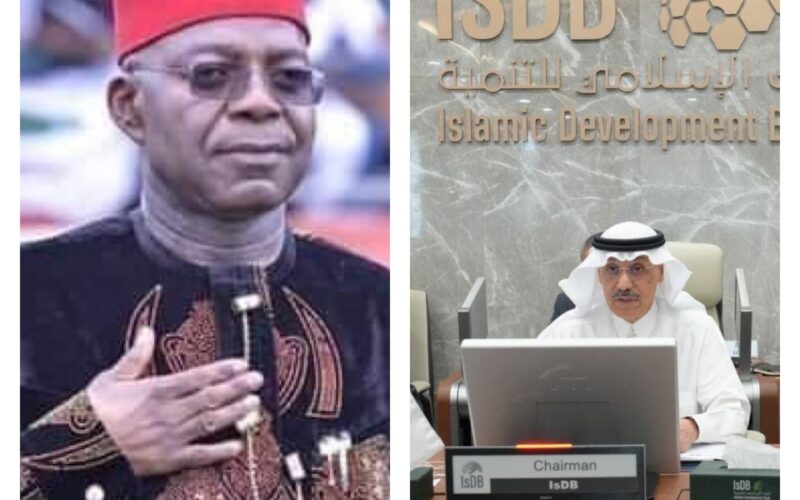The Islamic Development Bank (IsDB) has earmarked $125 million to facilitate the Abia State Integrated Infrastructure Development Project.
This strategic initiative, revealed in a statement by the IsDB, is part of a broader $225 million funding approval designed to propel new development ventures.
Chaired by the esteemed H.E. Dr Muhammad Al Jasser, President and Group Chairman of IsDB, the bank’s 354th meeting of the Board of Executive Directors saw the green light given to two pivotal projects aimed at fortifying socio-economic growth and sustainability in critical sectors.
About the Loan
The $125 million allocation for Nigeria is poised to significantly reduce travel times and costs on major roadways, concurrently enhancing market accessibility and social services for the local populace.
Emphasising inclusivity, the project promises to bolster mobility for all residents, prioritising safe and accessible transport options, notably for vulnerable community segments.
The statement read:
“Nigeria secured a US$125 million financing package to contribute to the Abia State Integrated Infrastructure Development Project. The project aims to reduce travel times and costs along key roads, while also improving access to markets and social services for local communities.
“Additionally, the project will enhance overall mobility by ensuring safe and accessible transportation for all residents, including vulnerable groups.”
$100 million for Malaysia
The IsDB also approved a $100 million investment in Malaysia’s Pengerang Energy Complex Project (PEC) under its Public Private Partnership programme.
This endeavour seeks to establish a cutting-edge, energy-efficient aromatics complex within the Pengerang Integrated Petrochemical Complex (PIPC) in Johor, Malaysia.
The project aims to enrich Malaysia’s downstream oil and gas sector and catalyse economic expansion and job creation in Johor, particularly benefiting its designated petrochemical zone.
More Insights
On June 30, 2023, the African Development Bank Group’s Board of Directors approved a loan of $115 million to Abia State. This financial injection is earmarked for a comprehensive road rehabilitation project within the state, notably affecting its capital, Umuahia, and its bustling commercial centre, Aba.
The initiative, valued at a total of $263.80 million, encompasses an extensive overhaul of the road network, establishing erosion control mechanisms, and developing solid waste management facilities in these key cities.
The project’s funding matrix includes a $100 million loan from the African Development Bank, supplemented by a $15 million contribution from the Canada–African Development Bank Climate Fund (CACF) and a co-financing loan of $125 million from the Islamic Development Bank.
In addition, the Abia State government is set to contribute $23.80 million in counterpart funding, aimed primarily at compensation and the execution of a Resettlement Action Plan for those impacted by the project’s implementation.
Scheduled for completion by 2029, the project will rehabilitate 248.46 km of roadways 58.03 km in Umuahia and 190.43 km in Aba upgrading them to asphaltic concrete standards. This infrastructure endeavour also includes restoring erosion-prone areas and initiating studies to engage the private sector in solid waste management for both cities.
Beyond the infrastructural upgrades, the project is designed to bolster community welfare through capacity building, project management, and enhancing social infrastructure. This includes rehabilitating educational facilities and improving sanitation amenities in schools, markets, and hospitals, marking a significant stride towards sustainable development and improved quality of life in Abia State.




